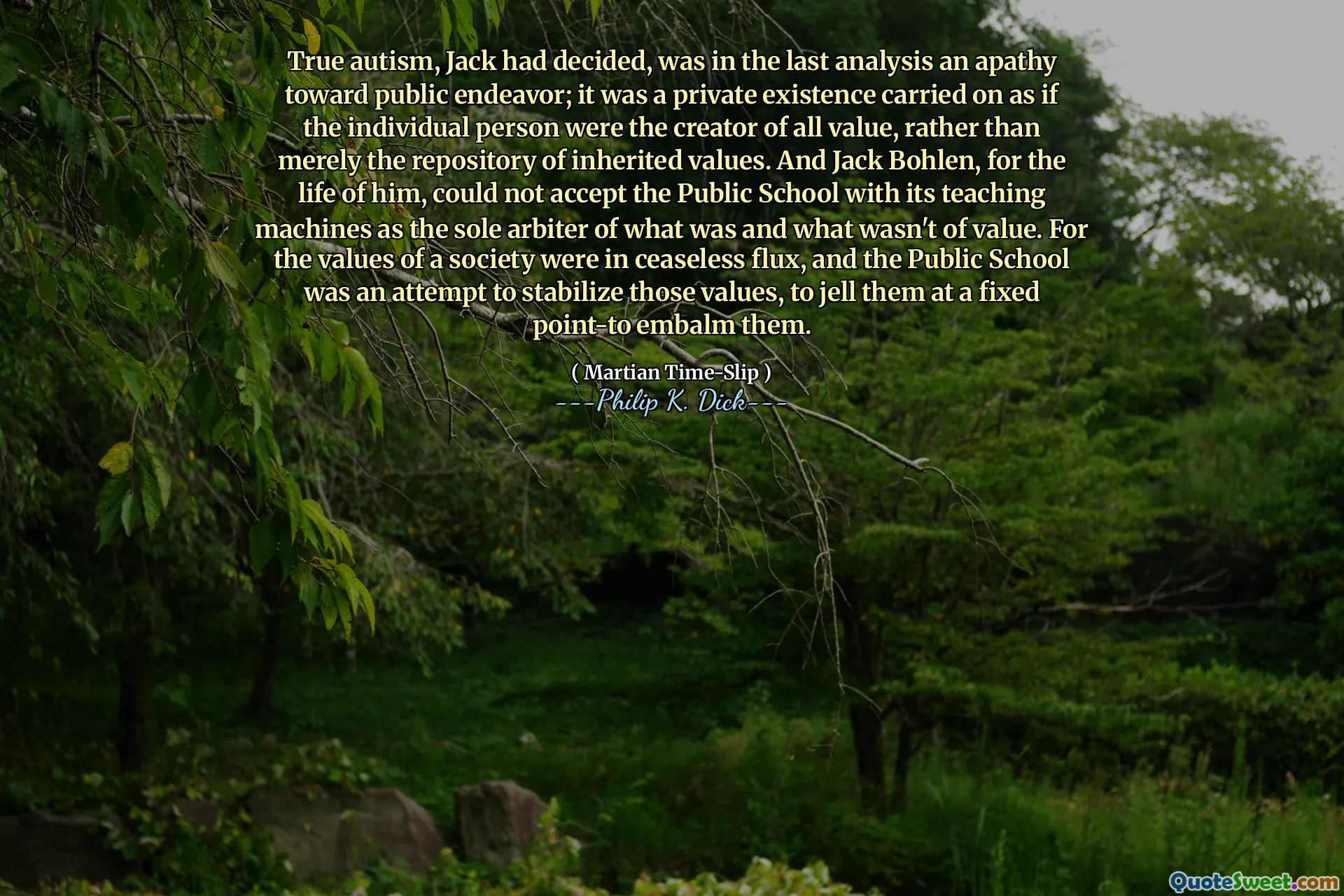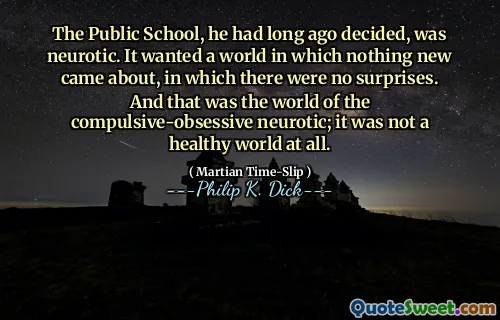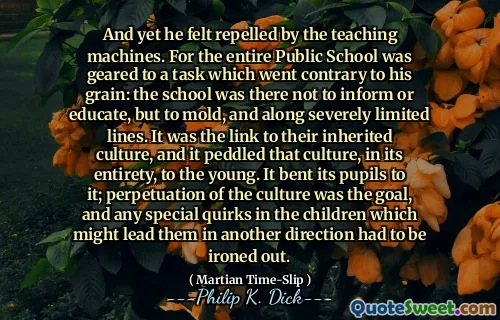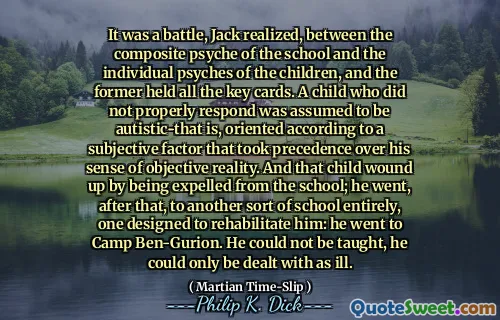
True autism, Jack had decided, was in the last analysis an apathy toward public endeavor; it was a private existence carried on as if the individual person were the creator of all value, rather than merely the repository of inherited values. And Jack Bohlen, for the life of him, could not accept the Public School with its teaching machines as the sole arbiter of what was and what wasn't of value. For the values of a society were in ceaseless flux, and the Public School was an attempt to stabilize those values, to jell them at a fixed point-to embalm them.
In "Martian Time-Slip," Jack Bohlen believes that true autism reflects a disinterest in public matters. He views it as a solitary way of living, emphasizing personal value creation over societal norms. For Jack, his experience of autism leads him to question the validity of accepted societal values, which he feels are subject to constant change.
He rejects the idea that public schools, with their reliance on teaching machines, should dictate worth. To him, these institutions merely strive to cement values at a static point, stifling their natural evolution and failing to recognize the dynamic reality of societal beliefs.











